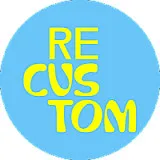|
Featured Blog Posts
Passover is going to feel different this year.
Building Resilience Through Stories
Judaism is a religion of stories. But how do those stories help us become more resilient?
We were fortunate to have the opportunity to host Beth Lipshutz, MSW and wellness educator with BeWell, for a webinar last week to learn the science behind why storytelling builds resilience in young people and how our families choose different stories to share with each other.
Take a look at this recording of our webinar to learn how to add a storytelling element to your Passover Seder this year, and then don't miss the resources that BeWell shared with us below.
Feeling inspired and want to dig deeper?
Check out these resources that BeWell shared with us:
- Building Resilience Through Family Stories
- Do You Know Questions
- Story Spine Sheets
- Story Spine Google Form
- Tips for Addressing the Current Moment at This Year's Seder (Kveller)
If you were able to join us last week, or watch the webinar online, we would love your feedback! Please take a minute to complete this feedback form and let us all know what you thought.
Setting Seder Intentions
Times are challenging, and gathering a group of people with inquisitive minds — and potentially wide-ranging opinions — around our Passover tables may be stressing some of you out. Someone may have even told you to develop a meditation practice. But even if you wish people who say “namaste” would sashay away, now is the time to think about what kind of seder experience we want to prepare for ourselves, our families and our guests this year, and how Haggadot.com can guide you toward your goals.
Whether you’re a closed-eyes considerer, a tactile scripter or a symbolic singer, here are three approaches to setting intentions for the 2024 seder.
1. Closed-eyes considerer? Consider slow and silent meditation: What’s your vision for creating a caring and connected seder experience?
2. Tactile scripter? Get a blank piece of paper and jot down your guests’ names, seder goals, ideas, related words and themes and any particular assignments you want to give them.
3. Symbolic Spotify-er? A Passover-themed Spotify playlist can help you get excited for the experience and create a mood for your guests before they ever arrive at your table.
How are you setting intentions for your seder this year? What sources on Haggadot.com are you using in your Haggadah? Need more ideas?
Clear Eyes, Full Hearts (and Deep Breaths) Can’t Lose
- Breathe deep breaths. Close your eyes and think about your 2024 seder.
- As you’re breathing, think of the words that describe your intentions for this Passover experience.
Four Questions to guide you:
1. What’s your vision for seder this year? How will you create a space that’s caring?
2. How do you want your guests to participate and connect?
3. Think about the conversational flow you’d like to dip into at this year’s seder: what does it sound like?
4. Who do you want to make sure is represented around your table or with the Haggadah content you choose to share?
We’ve Got a Blank Space, Baby
Get yourself a piece of blank paper. At the top, write “SEDER 2024” or give it a name that inspires you (ex: “TAY-der: The Taylor Swift Seder”).
Spend two minutes brainstorming — as prose or a list, whatever works for you! — on one or all of the following topics (OK, you got us, it’s Four Questions again):
1. How do you want people to experience the seder? (educational experience, social experience, culinary experience, etc)
2. How do you want them to participate? (assign sections/ideas to think about in advance, spontaneously ask questions at the seder, etc)
3. Do you want to create and circulate a set of guidelines or behavioral norms to guide the conversation, to be sure that everyone participates in the same spirit?
4. Create the “word cloud” of how you want people to experience the seder topics, ideas or intentions you want to hit: Freedom/expansiveness? The four children as symbols for how Passover bridges different opinions? Providing food and ideas for people who hunger? Care? Connection?
Freedom ‘24: A liberation playlist:
- Make a list of songs that inspire you along the themes of Passover, dinner parties, religious symbolism, meeting new people, etc
- Curate it on Spotify and share it with the guests in advance as a mood-setting experience and/or challenge them to add to the list or create their own! You can even add your playlist to your haggadah!
How are you setting intentions for your seder this year? What sources on Haggadot.com are you using in your Haggadah?
More Articles
Support Us
with your donation
Help us build moments of meaning and connection through
home-based Jewish rituals.
Inspired to create
your own Haggadah?
Make your own Haggadah and share with other Seder lovers around the world
Have an idea
for a clip?
People like you bring their creativity to Haggadot.com when they share their ideas in a clip
Passover Guide
Hosting your first Passover Seder? Not sure what food to serve? Curious to
know more about the holiday? Explore our Passover 101 Guide for answers
to all of your questions.


